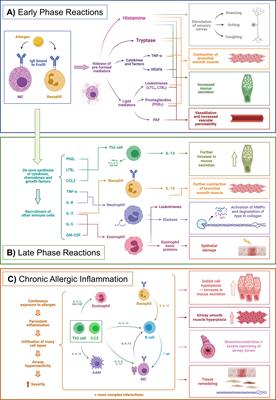EDITORIAL
Published on 14 Feb 2022
Editorial: Systems Biology Approach to the Immunology of Asthma and Allergy
doi 10.3389/fimmu.2022.857403
- 1,527 views
- 1 citation
17k
Total downloads
48k
Total views and downloads
You will be redirected to our submission process.
EDITORIAL
Published on 14 Feb 2022
ORIGINAL RESEARCH
Published on 07 Jan 2022

ORIGINAL RESEARCH
Published on 05 Jan 2022

ORIGINAL RESEARCH
Published on 10 Aug 2021

REVIEW
Published on 28 Jul 2021

ORIGINAL RESEARCH
Published on 25 Jun 2021

MINI REVIEW
Published on 02 Jun 2021

ORIGINAL RESEARCH
Published on 18 May 2021

